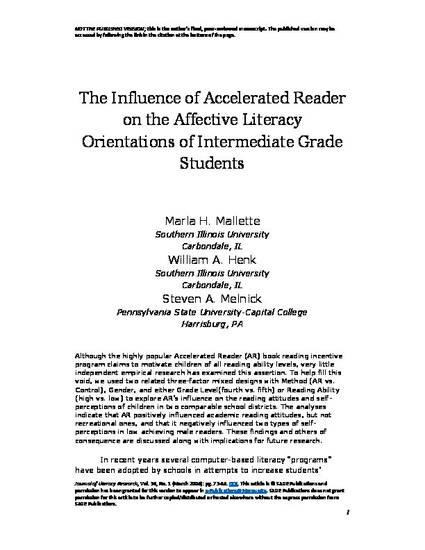
Although the highly popular Accelerated Reader (AR) book reading incentive program claims to motivate children of all reading ability levels, very little independent empirical research has examined this assertion. To help fill this void, we used two related three-factor mixed designs with Method (AR vs. Control), Gender, and either Grade Level(fourth vs. fifth) or Reading Ability (high vs. low) to explore AR’s influence on the reading attitudes and self-perceptions of children in two comparable school districts. The analyses indicate that AR positively influenced academic reading attitudes, but not recreational ones, and that it negatively influenced two types of self-perceptions in low achieving male readers. These findings and others of consequence are discussed along with implications for future research.
Available at: http://works.bepress.com/william_henk/12/

Accepted version. Journal of Literacy Research, Vol. 36, No. 1 (March 2004): 73-84. DOI. © 2004 SAGE Publications. Used with permission.
Bill Henk was affiliated with the Southern Illinois University - Carbondale at the time of publication.